Search for academic programs, residence, tours and events and more.
Embark on a lifelong career in music and the performing arts with our comprehensive and inclusive degree program. Discover your unique artistic identity and answer the question: “Who are you as an artist?”
The Master of Music (MMus) in Collaboration, Curation, and Creative Performance (C3) is a four-term sequential program starting anually each Fall. You will engage in courses that cover academic, research, entrepreneurial, business, and creative fundamentals. These classes will equip you for a experiential placement in an arts-based community or performance setting, as well as facilitate connections with faculty and university partners.
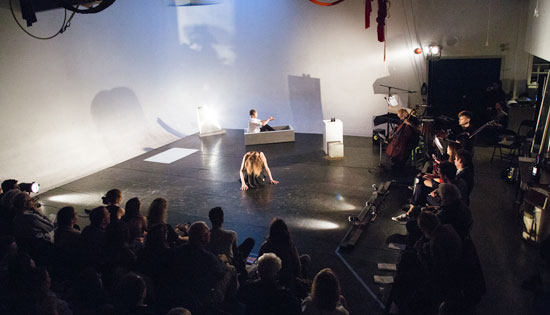
Applied experiential learning placement with arts organizations.
Interactive collaborative creation with like-minded artists.
Unique in Canada with its focus on collaboration.
The Master of Music in Collaboration, Curation, and Creative Performance provides a comprehensive musical education.
During the initial phase, you'll engage in courses encompassing academic, research, entrepreneurial, business, and creative foundations. Our curriculum celebrates a wide array of musical cultures, instruments, traditions, and genres. It emphasizes both collaboration and curation in the creative process.
These courses equip you for an experiential placement in an arts-based community or performance setting. You'll learn to navigate the dynamic landscape of Canada’s multicultural and interdisciplinary arts scene, taking into consideration Indigenous perspectives on musical significance within society and the arts community.
In the concluding phase of the MMus C3 program, you'll join forces to produce and curate a new work or reinterpret existing pieces for a Major Artistic Project. This live performance incorporates crucial aspects of public musicianship, including interactive elements, spoken or projected introductions, inclusive language, and mindfulness of positionality. If other forms of performance art are integrated, it's imperative to engage with them authentically and with respect.
The MMus C3 includes an applied experiential learning field placement with partnering arts organizations. The placement is based on the best fit for the student and partner and can include a variety of tasks such as performance opportunities, curatorial duties, fundraising, grant-writing, and arts administration.
These experiences may be initiated by the student or arranged in consultation with the Faculty of Music’s placements coordinator and may be paid or unpaid. Students are assessed by both their supervisors at the partnering organization and their supervising professors through regular check-ins, reflexive feedback via journal entries, and a final report on learning outcomes. Placements are also offered in spring/summer, depending on student/partner organizational fit.
Examples of placement locations may include:
The Major Artistic Project is a public performance that can take place in traditional or non-traditional venues. Completion involves marketing and publicity of the event, appropriate venue selection, the inclusion of interdisciplinary elements, audience engagement, and successful performance of the newly created or curated work in a collaborative form.
Before the project, you must submit a proposal that includes an artist statement, a targeted audience statement, proposed marketing materials, a rationale for the project’s meaning and function, and a statement acknowledging the program and venue’s accessibility. This should showcase the curatorial and organizational skills learned during coursework and field placement, as well as an intentional narrative geared to the artistic function of the project.
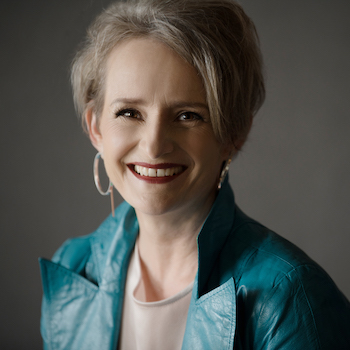
"This program encourages talented musicians who possess an entrepreneurial spirit, providing them with diverse learning and creative opportunities that support divergent goals. Through coursework and experiential placements that fill the gaps identified in a traditional conservatory or liberal arts music education, students become well acquainted with artistic collaboration, grant writing production management and much more."
Kimberly Barber, professor, Voice
Take the first step in your graduate education and apply to one of our graduate programs. Follow our three-step admission process — we’ll walk you through how to apply and prepare for your first day as a graduate student.
Admission to this program is reviewed by the Graduate Program Committee. Admission is based on the collective results of:
After you have submitted your OUAC application, paid the non-refundable application fee, and Laurier has received your application, you'll receive an email from gradadmissions@wlu.ca advising you to upload the additional required documentation to Laurier’s Online Registration and Information System (LORIS).
Please note, the application process and the uploading of supplemental documentation, which includes references, typically takes two weeks. To avoid disappointment, please apply early.
An application for admission to our Master of Music (MMus) program must include:
Visit our Graduate Admissions Toolkit for more information about applying.
Proficiency in written and spoken English is essential to graduate studies at Laurier. Applicants whose language of instruction during their previous postsecondary education was not in English must submit evidence of proficiency in English. If applicable, results from accepted testing services must be uploaded to LORIS.
Questions? Contact choosemusic@wlu.ca.
The Laurier Centre for Music in the Community (LCMC) is dedicated to fostering vibrant and inclusive musical communities through evidence-based participatory music practices. We connect Laurier to the wider Waterloo Regional community through musical activities, community research and collaboration
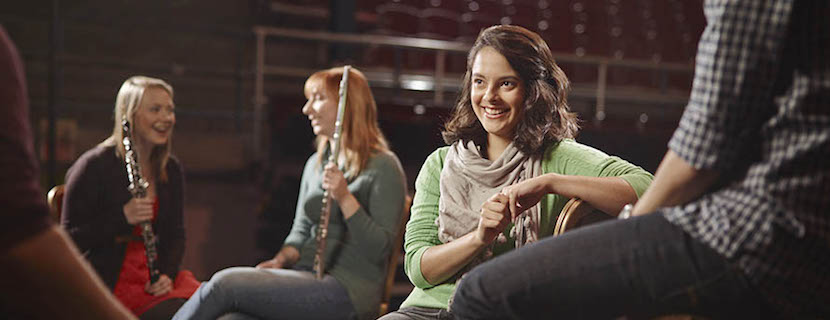
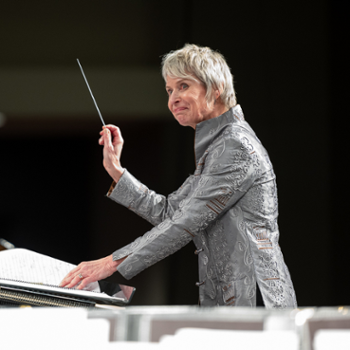
"A 'de-siloing' of what we do, how we do it, and most importantly why we do music, is key. We see this degree as an incubator for creatives to be the future."
Dean of the Faculty of Music, Cynthia Johnston Turner
Regardless of the type of graduate degree program you intend to pursue, financial planning is important. At Laurier, we want to provide you with as much information as possible about a variety of scholarship and funding opportunities and equip you with the skills to manage your finances effectively in the years to come.
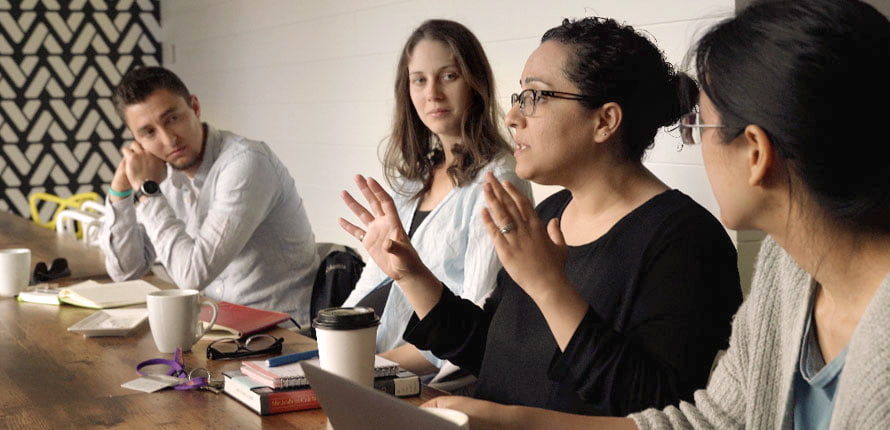
Graduates may go on to work in the following settings:
ASPIRE is Laurier's professional skills development training program for graduate students. The program helps you craft an individualized, extracurricular learning plan tailored to your professional journey and entry to the workplace.
Learn about the interests of our faculty members. If you are looking for more information about this program, have questions, or want to set up a meeting, contact a member of our team.
Barbara Assiginaak
Assistant Professor, Composition
Coordinator, Composition
Anya Alexeyev
Associate Professor, Piano
Coordinator, Keyboard
Kimberly Barber
Associate Dean, Faculty of Music - External Affairs, Partnerships and Graduate Studies
Professor, Voice
Administrative Coordinator, Opera
Jeremy Bell
Artist-in-Residence, Violing, Strings and Chamber Music
Member of the Penderecki String Quartet
Brennan Connolly
Musician in Residence, Percussion
Director, Percussion Ensemble
Karen Cyrus
Assistant Professor, Ethnomusicology, Community Music
Director, Tshepo Institute for the Study of Contemporary Africa
Matthew Emery
Assistant Professor (LTA), Composition
Cynthia Johnston Turner
Dean, Faculty of Music
Leah McGray
Director, Wind Orchestra
Lee Willingham
Professor, Music Education
Coordinator, Music Education
Coordinator, Master of Arts in Community Music
Coordinator, PhD: Music (Community Music)
Deanna Yerichuk
Assistant Professor, Community Music
Coordinator, Bachelor of Music in Community Music
Director, Laurier Centre for Music in the Community
Kirsten Yri
Associate Professor, Musicology
Coordinator, Master of Music (Collaboration, Curation and Creative Performance)
Coordinator, Music History, Theory and Critical Analysis
Gerard Yun
Assistant Professor, Community Music